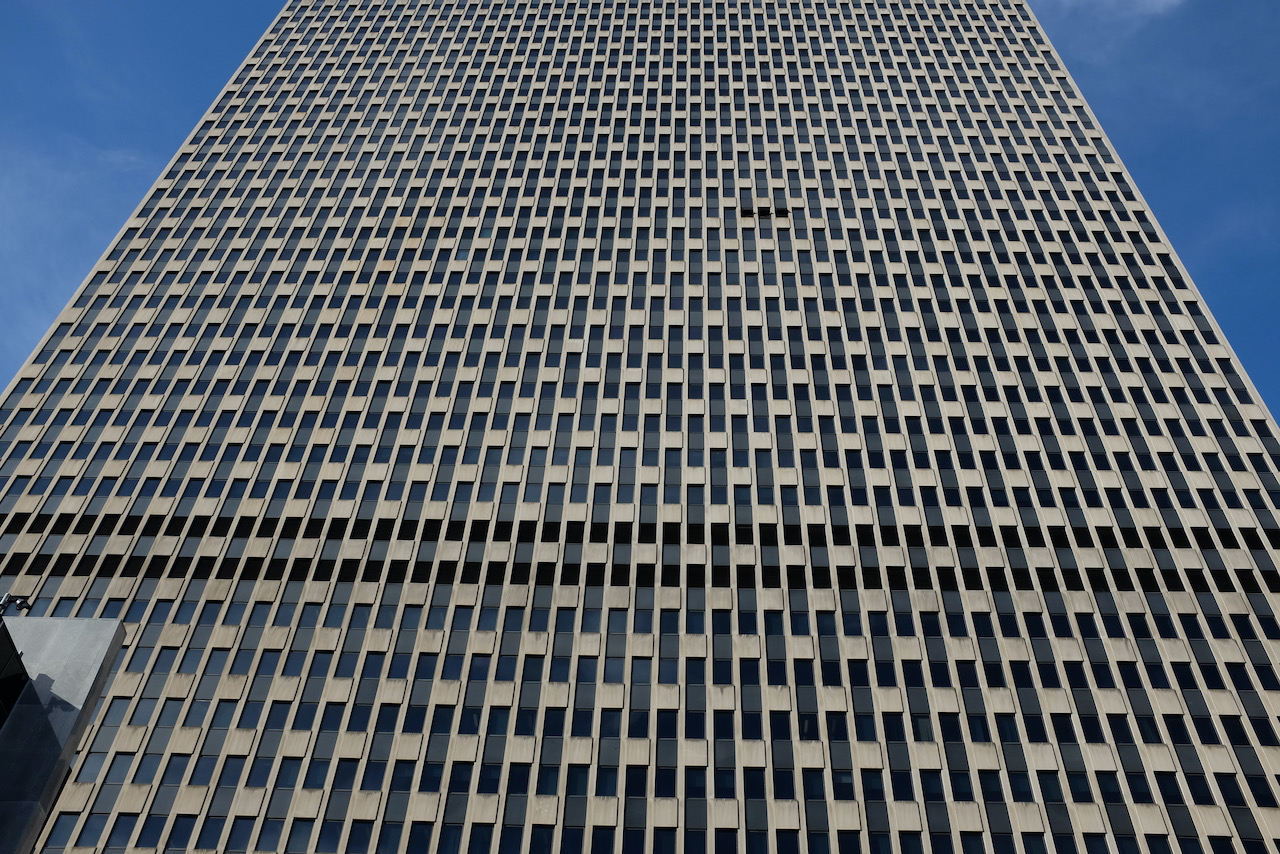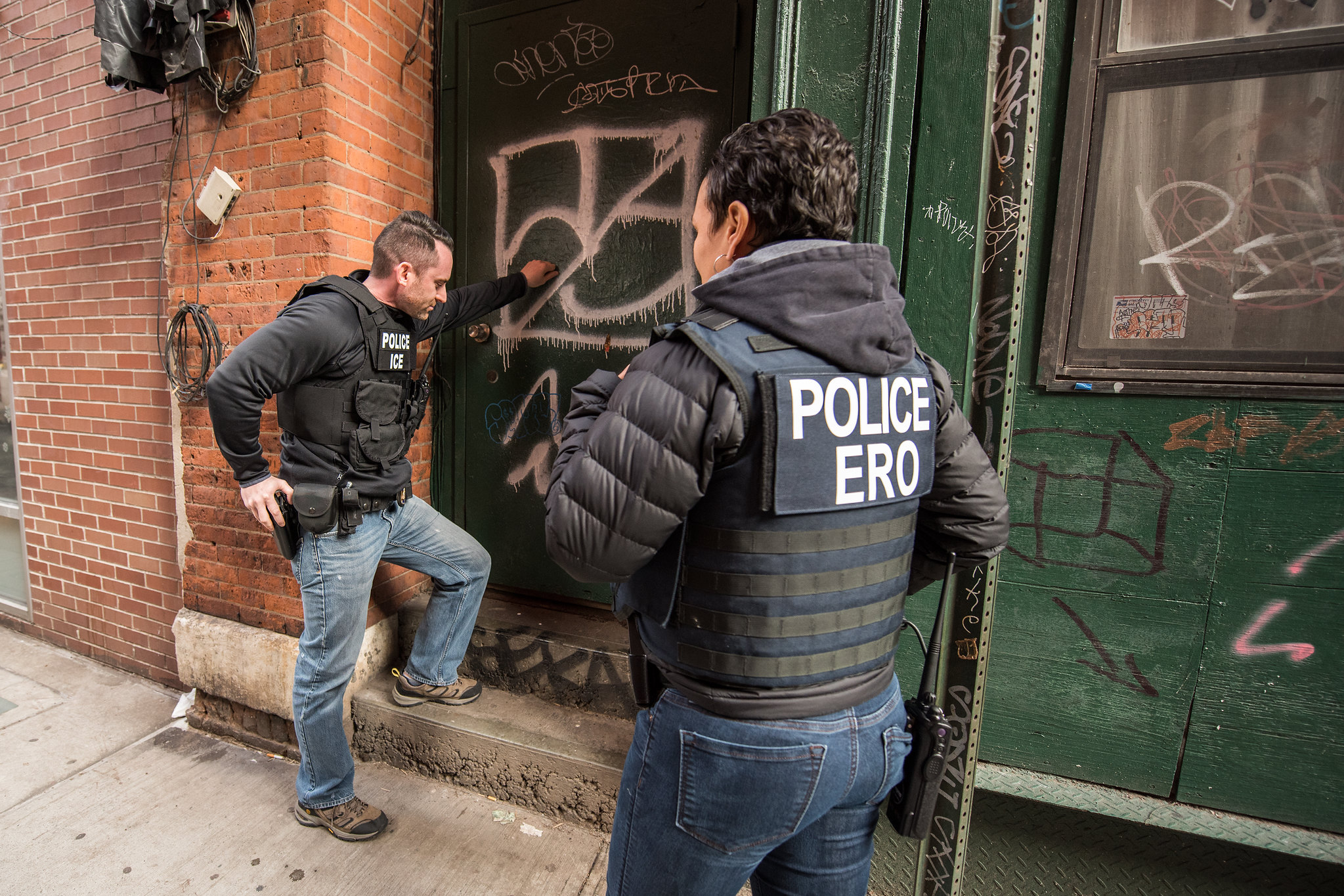Hannah Strauss has spent the last few months constantly calling New York’s immigration courts, checking an online scheduling portal and submitting motions to have the original date of an individual hearing reinstated. The process wasted valuable time, and meant constant uncertainty for her client, who has been waiting more than six years for an asylum court date due to the immigration court backlog.
Strauss, whose client fled El Salvador and arrived in the United States in 2015, originally had an individual hearing scheduled at the end of October. But at the end of July, she suddenly found out that it had been moved up to mid-August — and she hadn’t even gotten a paper notice of the drastic scheduling change.
“That was wild,” Strauss, an attorney for Catholic Charities, recalls now. After various requests, she was able to push back the individual hearing date until the end of October. But for the second time, the court moved the date up again — and again, Strauss had to request for the original date to be reinstated. “Instead of being able to focus on her case, we had to file motions to hold the record open, and do all of these things,” Strauss said.
The immigration court backlog, which is now at more than 1.4 million pending cases, according to Syracuse University’s Transactional Records Access Clearinghouse, which is more than two and a half times the level it was at when former President Donald Trump assumed office.
The courts have been pushing individual hearings forward often too soon for immigrants and attorneys to properly prepare. Individual hearings, particularly for asylum cases, require rigorous preparation both from immigrants, who must recount traumatic details of their lives for a successful case, and attorneys, who must submit dozens of pages of paperwork and work alongside their clients to equip them for the court date.
“We’ll look up our cases, and suddenly find that a case that we thought was on months from now, or even years from now, is suddenly on the calendar. And we don’t receive the paper notice,” said Dan Smulian, a senior attorney at Catholic Charities. “The courts have great desire to have the cases heard, and we have great desire to have cases heard as well, but we want it done in an orderly way in which we can properly represent our clients and uphold due process.”
Also Read: Backlogged Immigration Courts Prepare for More Asylum Seekers
In a statement, John Martin, the regional spokesman for the Executive Office for Immigration Review (EOIR) said that the agency “regularly evaluates individual dockets and makes adjustments as necessary.”
“Attorneys have longstanding information readily available to them about the filing of motions to continue, which immigration judges will adjudicate based on the unique facts of each case and relevant situation,” Martin said. “EOIR continues to manage its caseload as efficiently as possible and consistent with due process.”
In advance of an individual hearing, attorneys are required to submit all the documents for the case more than 30 days before the hearing date. But sometimes, as was the case with Strauss, attorneys are only finding out about a new rescheduled court date less than 30 days before it — and missing the filing deadline.
If a new hearing date is, say, just 35 days away, it’s “exceptionally difficult” to meet the court’s 30 day deadline for submission of documents, Smulian said. “When there’s a very short notice you have to scramble like mad to get all these things together,” he said.
Some attorneys, like Strauss and Smulian, recognize that the court is attempting to remove cases from their docket because of this vast immigration court backlog. But suddenly moving up hearing dates with little notice, attorneys say, is detrimental.
”I don’t think forcing people to have individual hearings when they’re not prepared for them is the way to do it,” Strauss said. “I think there’s other ways to lighten the docket, there’s other ways to create more order in this chaos —and it seems like they’re kind of welcoming in the chaos a little bit, and that’s hard.”
In the New York area, attorneys are urging the court to streamline cases that will help reduce the immigration court backlog, while still giving attorneys and their clients a chance to sufficiently prepare.
Margaret Garrett, a criminal immigration attorney at the Legal Aid Society of NYC, said that she also has an asylum case which has been rescheduled earlier than expected. When she saw the new date, she first thought it was a clerical error and continuously tried to get confirmation from the court that it was, in fact, the new date of the hearing. Now she has confirmed that the new hearing date is November 2nd, but she still has not received a written notice of that date, and has now filed a motion for a continuance that may or may not be granted. Garrett’s client is currently in Texas caring for a sick family member who has Covid, she said, and Garrett is not sure if her client will even be able to make it back in time for the new hearing date.
“It’s just obviously not enough time. And if they had told me November 2nd like six months ago, it’s not problem, I understand. But they’re not giving us any time,” Garrett said.
Also Read: Chaotic Reopening of Immigration Courts Make New York Immigrants Fear Deportations
Garrett’s biggest concern, she said, is “that we’ll lose, because we’re not adequately prepared.”
And there can be severe consequences for those that are forced to speed up the preparation of their individual hearings, particularly for asylum-seekers. At individual hearings for asylum, immigrants must provide testimony to essentially convince a judge that the harm they would face in their home countries, if sent back, is significant enough to be granted a stay in the United States, and that the harm is motivated by animus against certain protected grounds.
It’s a very unnatural situation, Smulian from Catholic Charities noted, where individuals are asked to remember some of the most agonizing moments of their lives, which sometimes may have happened years ago—and chronicle them in a clear, concise manner.
“That is even more difficult if the situation is rushed and you can’t adequately prepare and work with someone so that they’re able to best narrate their lives,” Smulian said. “What’s in the balance is, for many people, they fear significant harm or even death.”
He added: “Those lives hang in the balance.”
Also Read: Court Cases in New York Are Scheduled Out to 2023, Leaving Asylum Seekers Hopeless
Strauss’ client, who fled El Salvador with her child and arrived in the United States in 2015, had her hearing constantly rescheduled or cancelled over time because of Covid. Each time a new date would come up, she would have to draw up her testimony once again. And each time, she had to relive the anguish of some of her life’s most difficult moments. The added pressure of the rescheduled dates—including recent ones that came much sooner than expected—has only brought with it increased stress for her client, Strauss said.
“How can you not feel like you’re not going to get a fair shake if your case is being treated like just kind of throw it here, throw it there,” Strauss said.
And for attorneys, too, the strain on them only increases if dates are constantly shifted around. The time lawyers spend attempting to get the hearings back to the original date takes away from the time they could be spending actually preparing their client for an often traumatic hearing. On a busy week, Strauss said, she speaks with about 12 to 15 clients to see what is happening in their cases—and at one time, she has about 50 active cases, though not all of them may be as pressing as others. Her schedule is packed tight.
The sudden rescheduling worries her, she said, because she wants to administer the best counsel she possibly can—but also needs tools from the court to be able to do that. “I should be able to provide competent counsel to people,” Strauss said. “That’s my job and it seems like right now what’s happening is making it harder and harder to provide competent counsel because you’re being stretched so much.”














